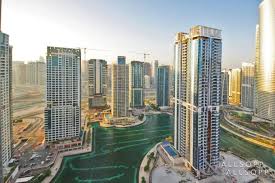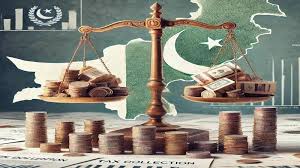From Icon Towers to Dubai Leaks

The Empire of Untouchables
There comes a time in every nation’s journey when a building ceases to be just concrete and steel— and becomes a towering emblem of impunity. The Federal Board of Revenue’s decision to auction Karachi’s Bahria Icon Tower over a staggering Rs26.46 billion tax default is not merely a bureaucratic manoeuvre or a financial headline— it is a thunderclap in Pakistan’s long and uneasy silence over elite accountability. In a country where the law often bows before wealth, status, and connections, this bold move feels almost surreal, a crack in the otherwise impregnable wall of privilege.
For too long, Pakistan’s economic and political architecture has been rigged to protect those perched at the top, even as millions below struggle under the crushing weight of inflation, indirect taxation, and diminishing opportunities. From palatial properties hidden in Dubai to domestic real estate empires built on evasion and favoritism, the story of Pakistan’s elite has been one of wealth without scrutiny, power without responsibility.
Pakistan’s survival as a sovereign, self-reliant, and just nation no longer rests on economic reforms alone— it now hinges on the courage to confront the entrenched culture of selective justice. The rule of law must be more than a slogan; it must become an unyielding force that spares no one, regardless of wealth, rank, or influence. This is not merely a question of fiscal policy or governance; it is a defining test of our national character. If Pakistan is to reclaim its integrity and the trust of its people, it must tear down the shield of impunity and let the scales of justice weigh all equally. Anything less will not only perpetuate the rot but will place the very soul of the republic at risk
If the state truly sees this through— not as a spectacle but as the beginning of a broader crusade against the empire of untouchables— it could mark a historic shift in how justice is administered and how trust is rebuilt. The Bahria Icon Tower case, if taken to its logical conclusion, might just become the symbolic first stone cast at the fortress of unchecked privilege that has long shielded the powerful in this country.
As ill luck would have it, Pakistan’s economy has been hostage to a deeply entrenched culture of selective accountability. From influential real estate giants to politically connected industrialists, tax evasion and wealth concealment have been practiced with brazen impunity. Ordinary citizens, particularly the salaried and low-income classes, have borne the brunt of economic pressures— from suffocating inflation to austerity— while the privileged few manipulate legal loopholes, move assets offshore, and hide behind power and connections.
IMF applause echoes in air-conditioned rooms while public misery festers in the sun-scorched streets of Pakistan. This bitter irony has become the defining feature of Pakistan’s economic narrative— a tale that celebrates numerical illusions while the masses are forced to sacrifice their very means of survival. While government officials boast about macroeconomic stability and curbed inflation, a dangerous disconnect grows ever wider between policy triumph and public despair. The recent World Bank report, which categorically highlights how Pakistan’s regressive sales tax system is the largest contributor to poverty and inequality, tears the veil off a much-glorified fiscal façade that the power corridors, both domestic and international, keep parading. It underscores a truth that many live daily but few in authority dare to acknowledge.
The regressive tax regime, where over 60 percent of tax revenue comes from indirect taxes like the General Sales Tax (GST), is essentially designed to punish the poor. These taxes do not discriminate between the rich and the impoverished— they impose the same rate on a billionaire buying luxury items and a laborer buying basic groceries. The end result? An exacerbation of existing socio-economic divides and a reinforcement of the poverty cycle. The poor pay a greater portion of their income in taxes than the wealthy— a grotesque inversion of fairness— while billionaires benefit from loopholes, waivers, and an impenetrable wall of privilege.
One cannot forget how Dubai Leaks laid bare the extent of asset flight and shadow wealth harbored by elites, including approximately 17,000 Pakistanis who own 23,000 properties in Dubai worth nearly $11 billion. These are not just statistics— they represent the drained lifeblood of a struggling economy. While Pakistan teeters on the brink of economic collapse, these billions rest comfortably offshore, far beyond the reach of domestic scrutiny and tax regimes. It was expected that the exposé would trigger a robust national response— one involving investigations, asset disclosures, tax inquiries, and criminal proceedings against those found guilty of evasion or illicit wealth accumulation.
Yet, disappointingly, no such action followed. Despite being fully apprised of the revelations and having access to detailed ownership records, concerned authorities limited their response to issuing a series of theatrical, hollow statements. No concrete steps were taken, no comprehensive investigations launched, and no real effort made to bring the powerful individuals implicated in the leaks to justice. The inertia and inaction that followed the Dubai Leaks are reflective of the deeply compromised governance systems in place— systems that bend for the elite while crushing the common citizen under the weight of taxes and accountability.
This failure, however, need not be permanent. As the state finally moves to hold the Bahria Town Group accountable, this could— and must— serve as a renewed opportunity to revisit the Dubai Leaks and undertake a systemic crackdown. There is still time to reclaim lost credibility and trust by ensuring that no one— regardless of status, background, wealth, or political influence— is spared. Pakistan’s tax regime must be seen as fair, firm, and fearless.
The auction of Bahria Icon Tower is not just about a building; it’s about demolishing the very edifice of elite impunity. If a tycoon’s landmark property can be auctioned off for defaulting on taxes, then why not others who have robbed the nation in stealthier ways? Why shouldn’t every name in Dubai Leaks be scrutinized, every suspicious asset abroad be cross-verified, and every loophole plugged?
This rare display of resolve by the FBR should not be squandered. The government must translate this into a larger campaign of accountability—one that targets not just real estate magnates, but tax defaulters across sectors, including politicians, military contractors, feudal landlords, and media moguls. A systematic and unapologetic push must be launched to bring back what rightfully belongs to Pakistan’s public exchequer.
However, such bold steps demand political will— something that has long been in short supply. Laws are meaningless if those in power lack the courage to enforce them against their own. We must not allow this moment to pass like many before it, drowned in bureaucratic paralysis and media distractions. Let the Bahria Tower auction be the beginning of a transformative drive— one that finally levels the playing field and ends the cycle of privilege and plunder.





